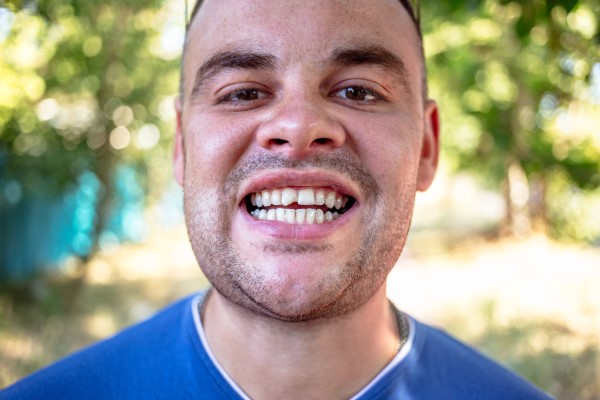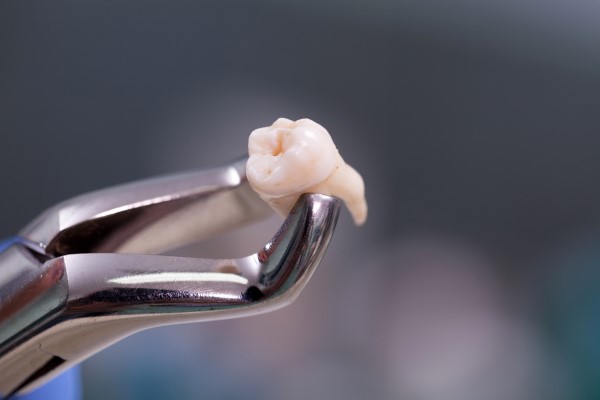Broken Tooth: 4 Common Causes

A broken tooth can be the result of many things, such as getting hit in the face while playing a contact sport. The severity of a broken tooth determines if it counts as a dental emergency. Minor breaks that only affect the outer layer of a tooth can wait a few weeks for treatment, but a broken tooth that leads to heavy bleeding in the area requires immediate care.
Common ways to end up with a broken tooth
A broken tooth is one of the most common issues that dentists deal with, and most people will break a tooth at some point in their lives. Here are common ways that a tooth can be broken.
1. Tooth decay
Tooth decay is primarily caused by acids in the mouth eating away at teeth surfaces. These acids are excreted by microorganisms that live in the mouth after they consume leftover food particles on teeth. The damage starts as small holes that form on the outer surface of teeth, known as cavities. If treatment is not administered, cavities will expand until they leave the teeth structurally compromised. At that point, it is only a matter of time before a chunk of the tooth falls off.
2. Trauma
A tooth can become broken as the result of trauma to the face. This can occur during a fall, slip, vehicle accident, or hard contact during physical activities. A broken tooth caused by trauma might be accompanied by severe bleeding. This is an indication that urgent dental care is needed. Such injuries can also lead to the damaged tooth becoming loose.
3. Biting into hard foods
At times, it only takes biting into hard foods to lose a piece of a tooth. Teeth that have been already weakened by other issues, like tooth decay, are more likely to break while chewing. Dentists often recommend avoiding hard foods to prevent such issues.
4. Teeth grinding
Habits like teeth grinding can lead to a piece of a tooth falling off. Teeth grinding typically occurs during sleep and can lead to teeth being exposed to extreme bite forces. As a result, teeth become structurally weakened and worn down. Some might even break while sleeping.
Treatment options
Procedures that dentists use to treat patients with broken teeth include:
- Composite bonding: This involves applying a mixture of plastics and glass to the damaged tooth; the putty-like material can be color-matched with the patient’s teeth, so any repairs made look natural, and the composite is molded as desired and hardened with a curing light
- Root canal therapy: Root canals are performed when the damage to a broken tooth leaves the pulp chamber compromised
- Crowns: Crowns are used to cover up serious breaks that compromise the structure of a tooth, and they are also used to protect teeth that have been repaired with root canal therapy
Get your tooth fixed
Tired of a broken tooth ruining your smile? Call or visit our New York clinic to set up an appointment with our dentist.
Request an appointment here: https://newyorkdmd.com or call New York DMD at (917) 284-9680 for an appointment in our New York office.
Recent Posts
Do you need your wisdom teeth removed? Read on to learn about this common oral surgery procedure. The third set of molars, otherwise called the wisdom teeth, usually develop between 17 and 25 and are removed through oral surgery by a general dentist. Most individuals have at least one impacted wisdom tooth, which means it…
If you have never sat in the dentist's chair for a tooth extraction, your upcoming procedure may seem unnecessary or too uncomfortable to bear. Remember that the dentist will explain the procedure beforehand and assure an experience that is as comfortable, quick, and painless as possible.The most common reasons for tooth extraction are that the…
A broken tooth can happen when you least expect it. To prevent the problem from worsening, it is best to see a dentist as soon as possible for treatment. Restoring or replacing a broken tooth stabilizes the bite, safeguards surrounding tissues, and supports long-term comfort.Possible options for treating a broken tooth include a dental filling,…
Gum disease treatment protects natural teeth by stopping infection, rebuilding support, and reshaping daily habits. A general dentist who provides dental implant surgery also prioritizes tooth preservation whenever feasible. Early diagnosis prevents irreversible attachment loss and bone shrinkage. Clear explanations and stepwise care turn anxiety into action.During evaluation, the dentist reviews medical history, records pocket…


